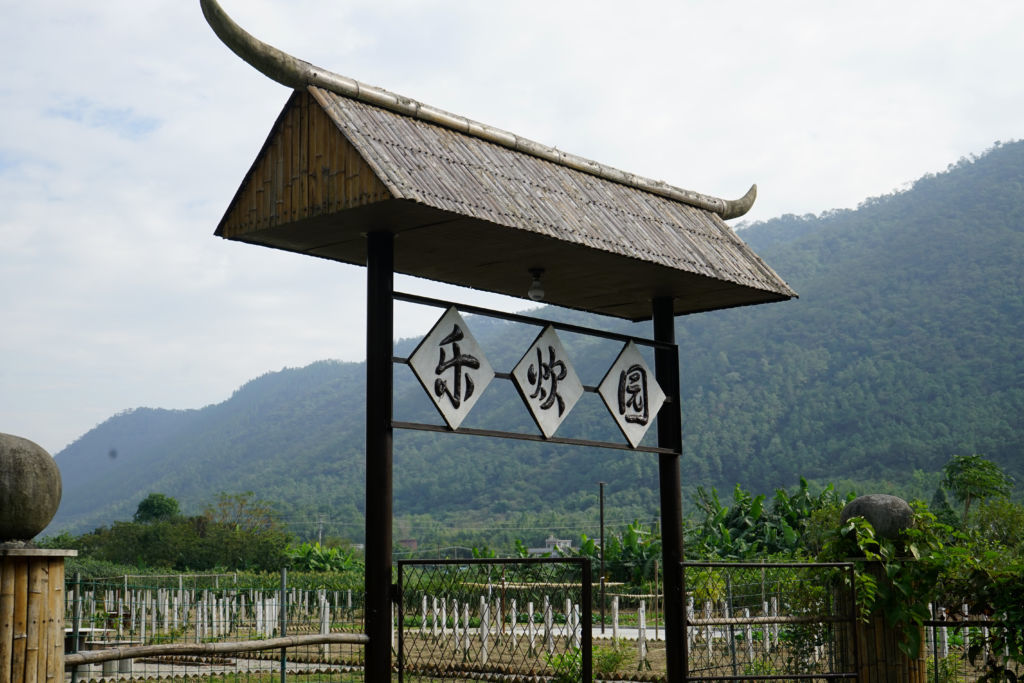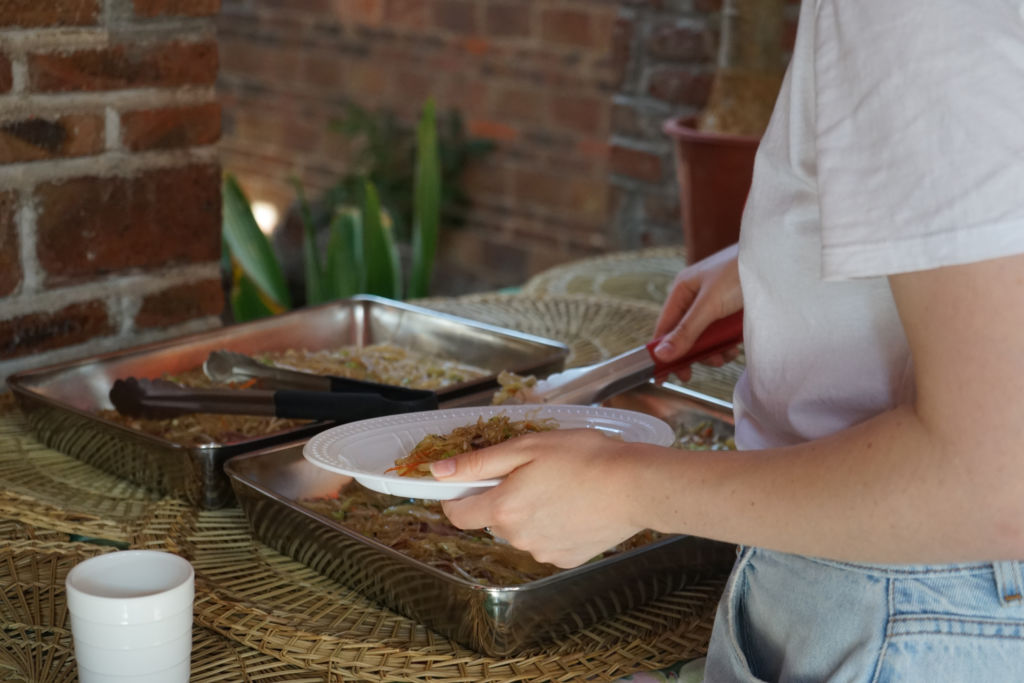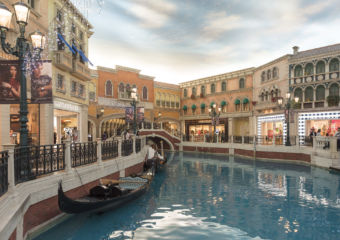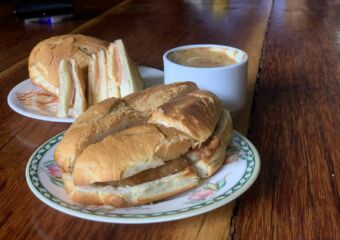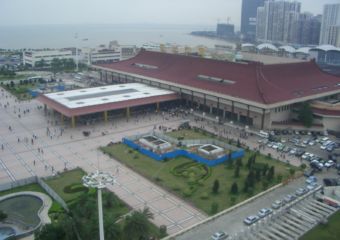Tangkou sits nestled in Kaiping, a rural area of Guangdong province which saw some 30,000 residents emigrate overseas in the late 1800’s. Young men journeyed across the globe in search of a more prosperous future, leaving their farms, women, and children behind unprotected and vulnerable to the threat of bandits. From this point on the beautiful landscape developed in a unique and unprecedented way as the overseas Chinese sent back their new-found fortune to invest in protection and the Western culture they had been exposed to influenced their ideas in how to do so. Their money paid for watchtowers named diaolous, tall buildings with slit windows to shoot bandits out of with European features merged with traditional Chinese decor.
As the need for diaolous lessened over time, the money instead built beautiful mansions also adorned with this mingled aesthetic, which were then left to decay throughout the 20th century. Tangkou became subject to a restoration project in 2011 (the Tangkou Community Project) and as such was awarded UNESCO heritage status, making the area an intriguing place to visit.
The TK-Space Hostel
The TK-Space is home to the team responsible for returning Tangkou to its former glory, with views of the surrounding villages from the rooftop, bikes to explore the area, and tour guides to answer every question on the village’s intriguing history.
The hostel is a modern renovation of an old post office and two factories, with minimal industrial decor juxtaposing the rice paddies, woodlands and lotus ponds which surround it. Not your typical hostel, both the dorms and private rooms available to stay in have crisp white sheets, a stone bathroom, and hot showers. Home cooked breakfast, lunch and dinner are provided—traditional Cantonese cuisine made from local organic produce—set beautifully in the courtyard and able to be taken to the roof terrace, in a private dining room, or next to a cozy log bonfire out in the back.
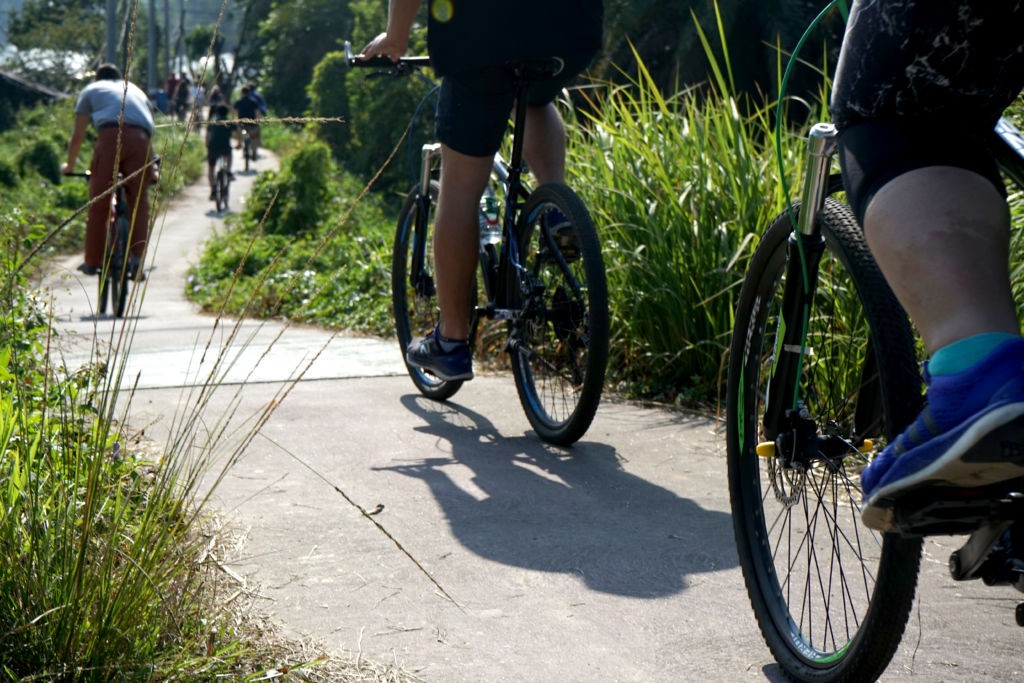
Bike Tour
The space offers a guided bike tour of the local villages led by an expert in the history and geography of the land. Due to the flat landscape, the ride is extremely leisurely—glide past rice paddies and lush green fields to visit the UNESCO sites, stopping for shade by the river along the way. The project did an immense job with the restoration of the village, conserving original features where possible and updating for practicality where needed. For example, the temple, which was opened at a candlelit 3am ceremony, that is now regularly used by villagers.
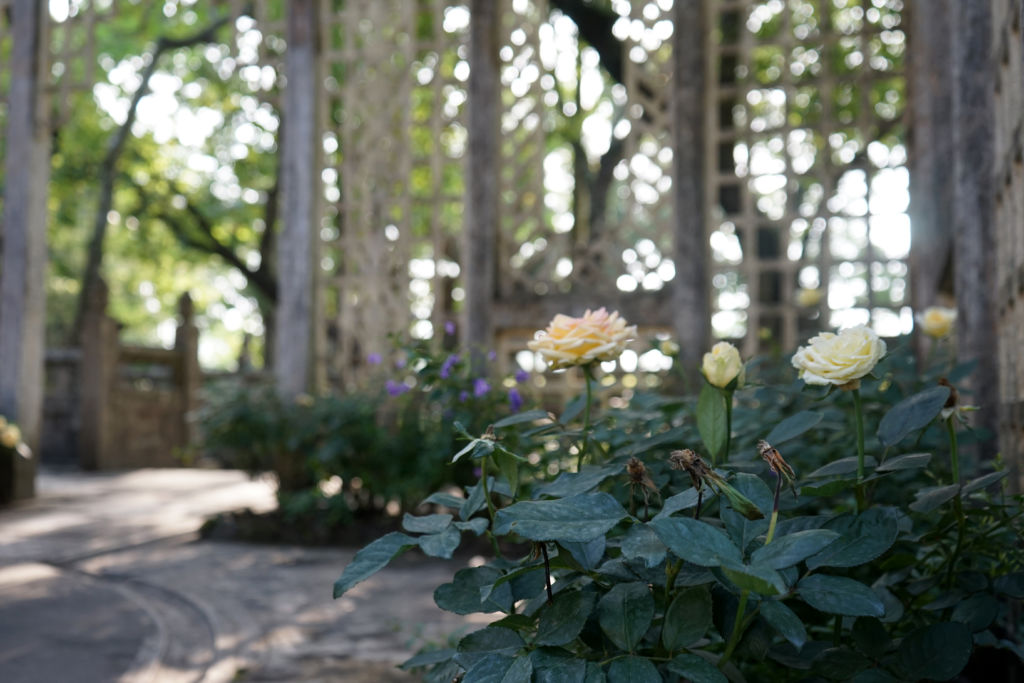
Li Gardens
The Li gardens is a beautiful collection of mansions rich with cultural and historical information. Read about the struggles and successes of the local village life before wandering around the stunning greenery and, in an act of almost morbid curiosity, peek into the mansions that for the most part are untouched since the day the family departed China. Step from the vibrant colors of the well-kept garden back in time, to rooms where worn black and white family photographs still sit on the mantle pieces, broken mirrors with Chinese paintings hang from the walls and nostalgia looms in the air. The Li garden is an incredible piece of people’s history rarely accessible elsewhere in China.
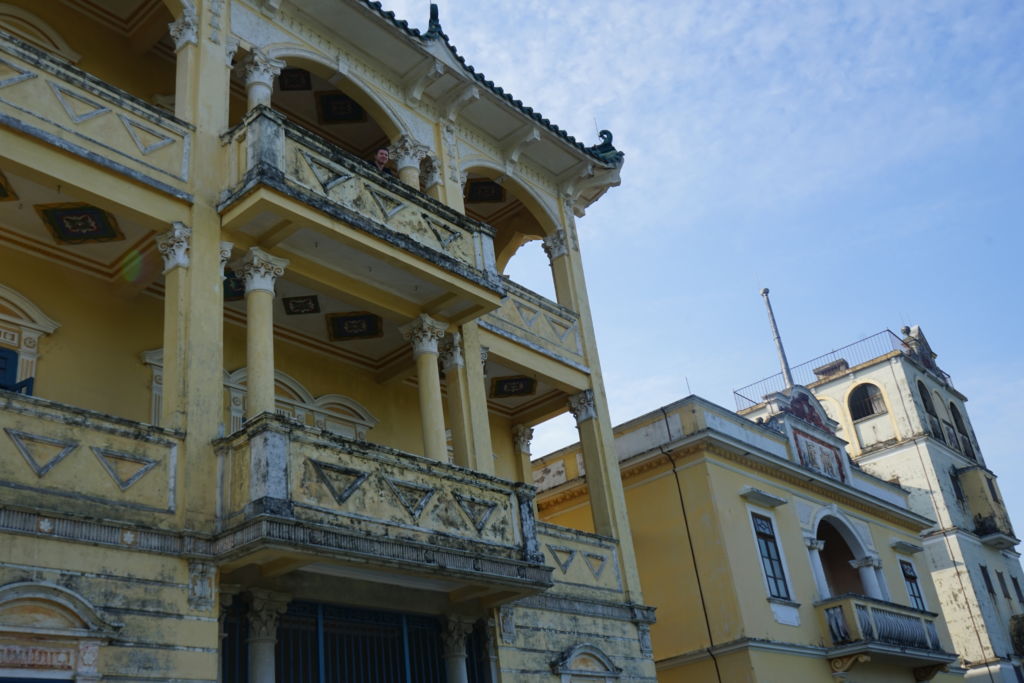
How much: 1 night + 2 days package, cost RMB ¥630 person. Including 1 night stay, all meals, UNESCO sites entrance, use of the bike and the facilities at the center, guided tour around with lecture and sharing section.
For stay only at the TK Hotel: RMB ¥80 per bed per night at the dorm with shared toilet and shower; RMB ¥280 per room per night in ensuite private room. All include breakfast and use of bike and facilities at the center.
For booking and other information: [email protected], +86 (0750) 264-3030

